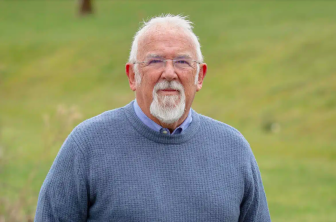
Parents who live together without tying the knot are more likely than their married counterparts to doubt that their relationship will stand the test of time, according to new research.
The Global Family and Gender Survey asked 16,474 adults across 11 countries about their relationships and found that married parents were not only more likely to be optimistic about their chances of remaining together; they were also more likely to cherish their relationship above other things in their life.
Over a third (39 per cent) of cohabiting parents in the UK said they had 'serious doubts' about the future of their relationship with their partner, far higher than married parents (27 per cent).
Asked whether their relationship with their partner was more important than almost anything else in life, over two thirds (71 per cent) of married parents in the UK agreed with this statement, compared with just over half (54 per cent) of cohabiting parents.
This trend was evident across Australia, Canada, the US and Ireland, where cohabiting parents were considerably less likely than their married counterparts to view their relationship as a vital part of their lives.
'Marriage remains the gold standard for families when it comes to stability and commitment,' said Bradford Wilcox, Professor of Sociology at the University of Virginia and senior fellow of the Institute for Family Studies, which commissioned the survey.
According to the research, cohabiting parents in the UK were also more likely than those across the 10 other countries surveyed to have 'serious doubts' about their future, coming ahead of the US (36 per cent), Canada (34 per cent), Australia (35 per cent) and France (31 per cent).
Across all 11 countries surveyed, married parents were less likely to question whether their relationship would last.
Harry Benson, research director for the Marriage Foundation, said the study was further evidence of a 'persistently large' gap in attitudes between married and unmarried couples.
'For years, we have been told by policy makers that so long as you're committed, you don't need to get married,' he said.
He pointed to a recent study establishing a link between divorce and the prevalence of emotional and behavioural problems in young people as an indication of how important it was that couples with children stay together.
'Falling divorce rates show that married parents are increasingly committed, happy and stable,' he said.
'Given that teenage mental health outcomes are so strongly linked to whether or not there are two parents in the home, it should be a matter of deepest concern that we are not seeing this improvement among cohabiting parents.'
Sir Paul Coleridge, founder of the Marriage Foundation and a former high court judge, said: 'How many more surveys do we need to encourage government to back marriage unequivocally?
'Children would be the biggest winners but so would we all with the cost to the taxpayer of family breakdown running at £50bn plus per annum.
'The big social issues of our time – mental health, education, poverty, crime – are all rooted in the instability of families.
'Whatever surveys we look at and whatever indicators we use, the outcomes are almost always better if children have the extra stability created by having married parents.'







